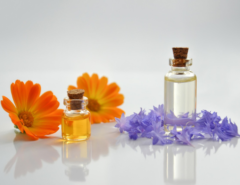A common myth we hear is that poison centers are just for little kids. But, that couldn’t be further from the truth — poison centers are for everyone! In years past, children under the age of six accounted for about half of all cases reported to poison centers. But recently, the percentage of calls for exposures in young children has decreased, while the number of calls for other age groups increased. Now, only 42.83% of cases reported to poison centers nationwide are for exposures in young children.
In 2019, Maryland Poison Center (MPC) data showed:
- Young children under the age of six were involved in 36% of cases
- Children ages 6-12 were involved in 6.8% of cases
- Teens ages 13-19 were involved in 9% of cases
- Adults ages 20-59 were involved in 35.5% of cases
- Older adults over the age of 59 were involved in 10.8% of cases
As you can see, young children still account for our largest number of cases, but only slightly more than adults.
What is a Poison?
A poison is defined as anything that is taken:
- in the wrong way
- in the wrong amount; or
- by the wrong person
Examples of poisons include:
- Drugs and medicines (e.g., prescription, over-the-counter, vitamins, supplements, illegal, or veterinary)
- Household, garden, and personal care products
- Chemicals (at home or work)
- Plants (e.g., mushrooms, berries, indoor and outdoor plants)
- Bites and stings (e.g., insects, snakes, animals)
- Gases and fumes
- Food poisoning
- Any item(s) that give individuals an unwanted or unexpected reaction.
Older Adults
Although older adults account for a lower percentage of our cases, they tend to suffer more serious effects from poisonings. Read one of our previous blogs about the top 10 reasons why older adults should call the poison center. Older adults may remember calling the poison center when their children were young, but sometimes overlook the fact that they, too, may need to call about themselves. Caregivers of older adults can also call the poison center for assistance.
Research shows that the average older adult takes four or more medicines a day. Taking multiple medicines means there is a higher risk for making mistakes. There is also a higher risk for some medicines to interact and cause unwanted effects. To better manage when and why you take your medicines, fill out our downloadable medicine tracker. Include all prescriptions, over-the-counter (OTC) medicines, vitamins, and supplements.
More information about poison risks for older adults can be found in our poison safety for older adults information sheet.
Adults
Adults are also at risk for poisonings, not just their children or parents. A majority of poisonings in adults involve some kind of medicine. It’s important for adults to always take their medicine(s) safely. Read our medicine safety information sheet to learn more.
The poison center helps with more than just medicines, though. Say you accidentally grabbed the wrong tube and now you’re brushing your teeth with muscle rub instead of toothpaste. Or, you grabbed eyelash glue instead of eye drops and got the glue in your eye. Or, you were cleaning the bathroom and mixed too many products together and became overwhelmed by the smell. Yes, all of these things can happen and the MPC can help.
Tweens and Teens
Tweens and teens are going through a lot of changes. Some risks that cause poisonings among this age group include stress, peer pressure, and dares. Exposures include not only medicines, but also cosmetics and personal care products. Many of these exposures are innocent mistakes as tweens and teens learn how to use these products independently. Some exposures are intentional, though. Intentional poisonings in tweens and teens can be the result of social media dares or challenges, substance abuse, or suicide attempts. Poison specialists can help manage all of these situations.
Encourage tweens and teens to read the labels of products and medicines before using them. A great resource for teaching safe OTC medicine use can be found on the OTC medicine safety website.
Children
Children get into a variety of products as they learn about their environment. Keep your home poison safe by reviewing our poison safety checklist and storing potential poisons up, away, and out of sight. An extra step to keep your home safe is to display the poison center’s phone number. If you are in our Maryland service area, you can order a free home poison safety packet.
Remember, poisonings can happen to anyone, so poison centers are for everyone! If you suspect you or someone else has been exposed to a poison, call the poison center right away. Do not wait for symptoms. We are open 24/7/365. The call is free and confidential. You’ll always reach a specialized pharmacist or nurse by calling 1-800-222-1222.





Leave a Reply